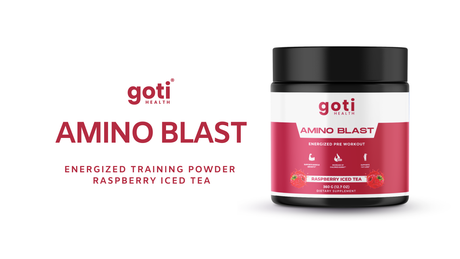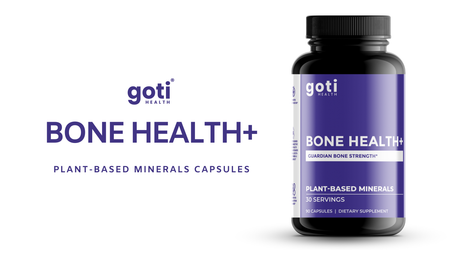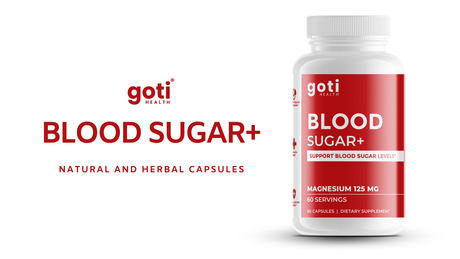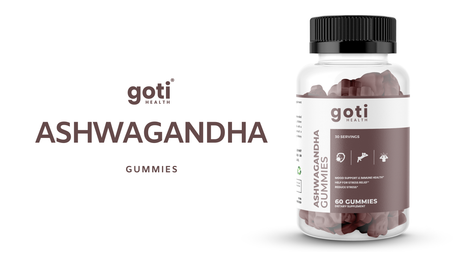Do you spend hours in the gym and eat a nutritious diet, yet find yourself struggling to build muscle? Have you been labeled a "hardgainer" and feel discouraged by your lack of progress?
If so, you're not alone.
Many individuals face similar challenges, but the good news is that being a hardgainer is not a life sentence.
With the right knowledge and approach, you can overcome your genetic limitations and achieve the physique you desire.
And that's exactly what this book is all about.
In this comprehensive guide, we'll explore the underlying reasons why some people find it difficult to build muscle, despite their best efforts.
We'll go through some rough theory and also provide you with actionable steps to help you overcome your limitations and finally see the progress you've been striving for.
But why is it so important to address the hardgainer label?
Well, because it's all too easy to fall into the trap of thinking that you're simply not cut out for muscle gain.
You might start to feel like you're wasting your time and energy, or worse, that you're simply not good enough.
But the truth is that being a hardgainer doesn't mean you can't build muscle - it just means you need to approach things a little differently.
So, whether you're a seasoned gym-goer who's hit a plateau, or a beginner struggling to see results, this book has something for everyone.
With easy-to-follow advice and expert tips, you'll learn how to optimize your training, nutrition, and recovery for maximum muscle growth.
So, what are you waiting for?
Let's unlock your muscle-building potential and get you on the road to your dream physique!
A Hardgainer, By Definition
The term "hardgainer" is often used to describe individuals who struggle to gain muscle mass despite consistent efforts in the gym and a healthy diet.
While there is no universally accepted definition, a hardgainer is typically someone who has a naturally fast metabolism and struggles to consume enough calories to support muscle growth.
Hardgainers may also have difficulty with nutrient absorption or suffer from hormonal imbalances that hinder muscle growth.
Additionally, though uncommon, hardgainers may not respond to training stimulus in the same way as others, requiring a more customized approach.
This can be frustrating for those who feel like they are putting in the work but not seeing the desired results.
Due to all of the above, hardgainers often feel discouraged and may begin to doubt their ability to achieve their fitness goals.
By understanding the reasons behind your struggles and taking a targeted approach to training, nutrition, and recovery, you can break through your plateau and finally gain the weight you want.
How Do We Gain Muscle?
The principle of gaining muscle can be summarized in one simple phrase - progressive overload.
Essentially, this means that to build muscle, you need to gradually increase the demand placed on your muscles over time.
This can be done by adding weight, increasing reps or sets, decreasing rest time, or varying exercise selection.
The goal is to constantly challenge your muscles in new and different ways, so that they are forced to adapt and grow.
The reason why progressive overload is such an effective strategy for muscle gain is that it stimulates the body to grow bigger and stronger muscles.
When you lift weights or engage in other forms of resistance training, you create microscopic tears in your muscle fibers.
In response to this damage, your body initiates a process called muscle protein synthesis, whereby muscle fibers grow bigger and stronger, and the nervous system becomes more efficient.
However, if you don't challenge your muscles with increasingly demanding stimuli, they will eventually adapt to the current level of stress and growth will slow or stop altogether.
This is why it's essential to continually push your limits and increase the demand on your muscles over time.
Of course, there are other factors that contribute to muscle gain, such as nutrition, recovery, and genetics.
But at its core, the principle of progressive overload is the foundation upon which all successful muscle-building programs are built.
Nutritional Requirements For Bulking
While training is certainly an important component of building muscle, nutrition is equally crucial.
In fact, some experts would argue that nutrition is even more important, as it provides the building blocks and energy necessary for muscle growth.
One of the key principles of muscle-building nutrition is ensuring that you consume more calories than your body requires to maintain its weight.
This number of calories required for maintenance is referred to as your total daily energy expenditure (TDEE).
To gain muscle, you need to consume more calories than your TDEE, or in other words, be in a caloric surplus.
This surplus provides your body with the energy it needs to not just maintain weight and healthy functions, but also fuel muscle growth and repair.
The exact amount of calories you need will vary based on a number of factors, including your age, sex, weight, food intake and activity level.
This is why it's important to calculate your TDEE and adjust your calorie intake accordingly.
It's also important to ensure that your diet is balanced and includes a variety of nutrient-dense foods.
Protein is especially important for muscle growth, as it provides the amino acids necessary for building and repairing muscle tissue.
Carbohydrates and fats are also essential for energy and overall health, which is why you shouldn’t really restrict yourself from quality carb sources, like potatoes, grains and fruits.
In summary, while training is important for building muscle, nutrition matters just as much.
By consuming enough calories to support muscle growth and ensuring that your diet is balanced and nutrient-dense, you can optimize your muscle-building potential and finally leave the hardgainer station.
About Fast Metabolisms
One of the most common excuses used by hardgainers for their lack of muscle growth is a "fast metabolism."
While it's true that some people do have a higher metabolism than others, the impact of this on muscle gain is often exaggerated.
In fact, the difference in metabolic rate between individuals of the same weight, age and activity levels is relatively small and unlikely to significantly impact muscle gain.
In many cases, the real reason behind a hardgainer's lack of progress is simply not consuming enough calories to support muscle growth.
This can be due to a variety of factors, such as poor appetite, inadequate meal planning, or an overly restrictive diet.
Even those with fast metabolisms can gain muscle if they consume enough calories and provide their body with the necessary nutrients.
If you’re one of those people who “eats a boatload of food but still can’t gain weight” consider this - most hardgainers who consume one huge meal tend to eat less for the remainder of the day.
With this in mind, it is important to note that gaining weight is not about eating huge meals, but consistently meeting your daily caloric needs, even if its through smaller, but more frequent meals.
Top 4 Hardgainer Tips
In summary, gaining muscle is a simple yet challenging process that requires a combination of progressive overload in training and adequate nutrition.
Hardgainers, who have a more difficult time building muscle, often struggle with consuming enough calories to support muscle growth, and may use a fast metabolism as an excuse
However, with the right mindset and targeted training and nutrition plan, anyone can overcome their limitations and achieve their muscle-building goals.
Now that we understand the principles behind muscle gain and the challenges that hardgainers face, let's explore five tips that can help hardgainers optimize their muscle-building potential.
#1 Spend More Time Eating
One of the most effective ways for hardgainers to break through their plateau and see real muscle growth is to simply eat more.
Many hardgainers struggle to consume enough calories to support muscle growth, and increasing their food intake is often the key to overcoming this challenge.
However, it's not just a matter of eating more food - hardgainers also need to give themselves more time to eat.
Oftentimes, we eat in a rush or on-the-go, which can lead to poor digestion and less total food consumed.
By putting more food on our plates and giving ourselves more time to eat, we can ensure that our bodies have the fuel they need to support muscle growth.
This may mean setting aside more time for meals, planning meals and snacks in advance, and even preparing larger portions than usual.
Of course, it's important to ensure that the extra food we're consuming is nutrient-dense and supports our muscle-building goals.
This means focusing on whole, minimally processed foods that are rich in protein, carbohydrates, and healthy fats.
#2 Try Sweet Potatoes
When it comes to bulking, one food that stands out as a top choice for hardgainers is sweet potatoes.
These starchy root vegetables are packed with complex carbohydrates, fiber, and essential vitamins and minerals, making them a nutrient-dense choice for those looking to gain muscle mass.
Sweet potatoes can be consumed in a variety of ways, from baked and mashed to roasted and grilled, making them a versatile and delicious addition to any bulking diet.
One of the key benefits of sweet potatoes for bulking is their volume to weight ratio - two quarters of a medium-sized baked sweet potato weigh about 120 grams.
And frankly, sweet potatoes are not as satiating as regular potatoes - you can easily consume 300-350 grams of sweet potatoes in one sitting, providing that extra bit of calories you need.
Overall, sweet potatoes are a fantastic food choice for hardgainers looking to optimize their bulking diet.
They provide a rich source of complex carbohydrates, fiber, and essential vitamins and minerals, while also being versatile and delicious.
#3 Train Progressively
Pairing increased food intake with progressive training is one of the best ways for hardgainers to gain muscle.
When we consume more calories than our bodies require, we create a caloric surplus, which is necessary for muscle growth.
However, this surplus alone is not enough to stimulate muscle growth - we also need to provide our muscles with a progressive and challenging stimulus through training.
Progressive training involves gradually increasing the demand placed on our muscles over time.
Here are 5 ways to progressively overload:
- Increase the weight used
- Increase the number of sets
- Increase the number of repetitions
- Increase training frequency
- Decrease rest times
By consistently challenging our muscles in this way, we create an environment for growth and adaptation, leading to increased muscle mass.
Pairing a caloric surplus with progressive training is a powerful combination for hardgainers looking to gain muscle.
By providing our bodies with the necessary fuel for growth and challenging our muscles through training, we create an ideal environment for muscle growth and can overcome the limitations that make gaining muscle more challenging for some individuals.
With patience, consistency, and dedication, hardgainers can, without a doubt, reach their full potential.
#4 Sleep & Stress
Quality sleep and stress management are crucial components of any successful weight-gain strategy.
When we sleep, our bodies undergo a range of important processes, including muscle repair and growth.
Getting enough high-quality sleep is essential for hardgainers looking to build muscle, as it allows our bodies to recover and adapt to the demands of training.
Stress management is also important for weight gain, as stress can have a negative impact on our bodies' recovery, and for many people, can also decrease appetite, leading to suboptimal food intake.
By managing stress through techniques such as meditation, deep breathing, and exercise, hardgainers can support their muscle-building goals and ensure that they are creating an optimal environment for growth.
Overall, quality sleep and stress management are crucial components of any weight-gain strategy.
By prioritizing these factors in addition to training and nutrition, hardgainers can optimize their muscle-building potential and achieve the gains of a lifetime.
While gaining muscle may be a challenging process for some, with a comprehensive approach that addresses all aspects of health and wellness, success is within reach.
Final Thoughts
In conclusion, gaining muscle as a hardgainer can be a challenging process, but it is not impossible.
By understanding the underlying principles of muscle growth and implementing effective strategies, hardgainers can overcome limitations and finally start gaining muscle.
Increasing food intake, progressive training, and prioritizing quality sleep and stress management are all key components of a successful weight-gain strategy.
Additionally, incorporating nutrient-dense foods like sweet potatoes, meat, fish, fruits and vegetables into the diet can provide the necessary fuel for growth.
With patience, consistency, and dedication, hardgainers can optimize their muscle-building potential and reach their fitness goals.
So, don't let the "fast metabolism" excuse hold you back any longer - follow these tips and start making progress towards the muscular physique you've always wanted.
Read a related blog here.


















